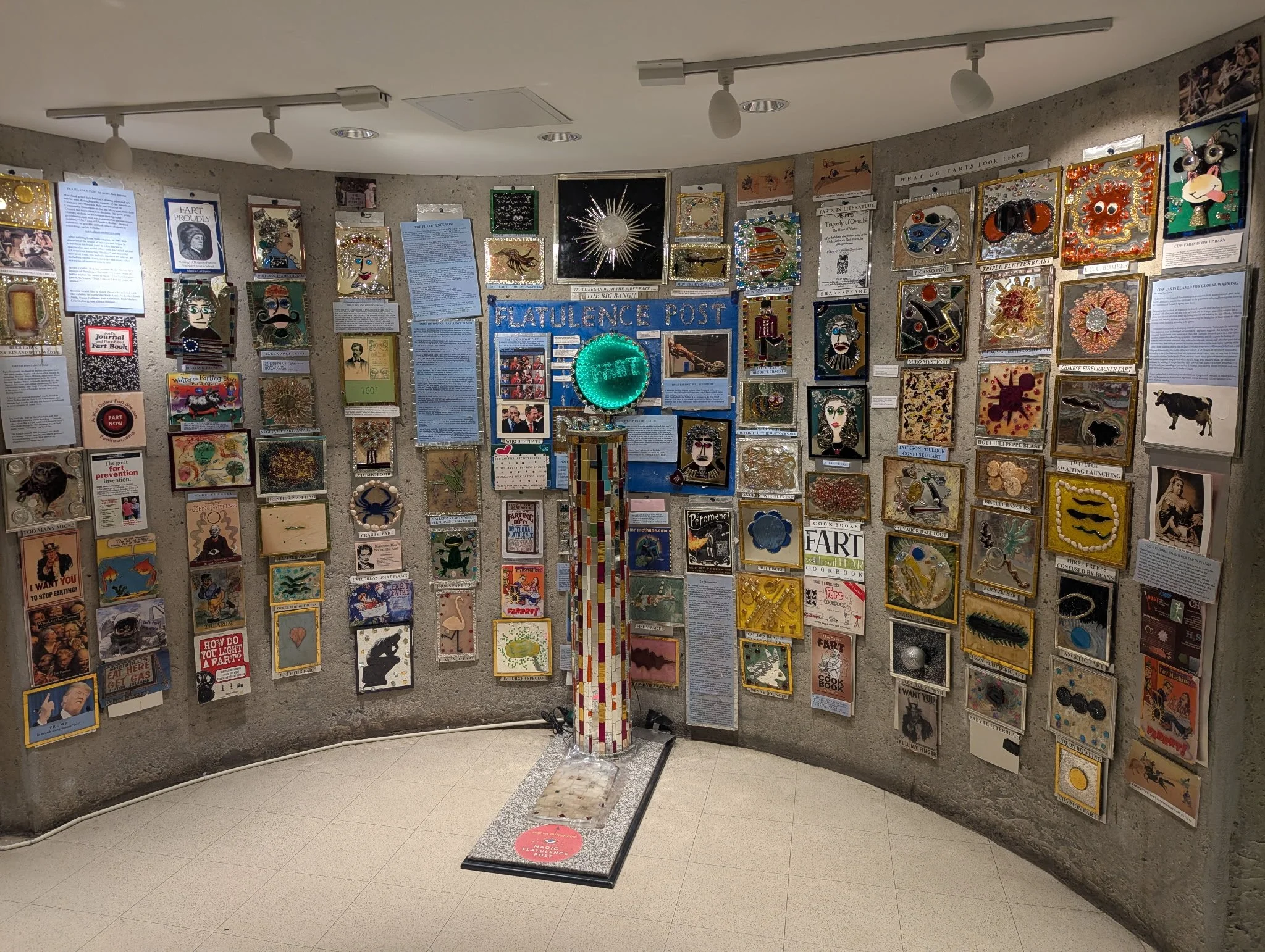Love, Laughter… and a Fart Machine
What a Visionary Artist—and My Brother—Taught Me About Love
“Love is all you need.”
— John Lennon
In a world filled with wars, corruption, and where toughness often overshadows kindness, I find myself asking: Where is love?
The answer, I’ve learned, is everywhere—if we look for it. Love shows up in many forms, through unexpected teachers and in moments that catch us off guard.
Recently, I spent a few days with my developmentally delayed brother, Chris, and his best friend, Arthur. We were celebrating Arthur’s 63rd birthday. My gift to him was a year-long membership to the American Visionary Art Museum (AVAM) in Baltimore—a perfect fit, since both Arthur and Chris love to paint and create. AVAM, a treasure nestled in Baltimore’s Inner Harbor, showcases art by self-taught artists. It’s joyful, accessible, and especially meaningful for those like Chris and Arthur, who see and experience the world differently.
What I didn’t expect was how deeply one exhibit would move us all.
Judith Scott’s story took my breath away. Born with Down syndrome, Judith spent over 30 years institutionalized before being brought home by her twin sister, Joyce.
Once surrounded by love and community, Judith—who had never spoken or created art before—began to make extraordinary fiber sculptures. Yarn, string, tubes—everyday objects—transformed in her hands into works of art. She’d finish one and hand it to someone before moving on to the next. Her art was born from love and became her voice to the world.
Joyce said it best: when Judith felt loved, she began to create magic. Today, Judith Scott is an internationally acclaimed artist. (You can learn more about her here.)
As I walked through the exhibit, tears welled up in my eyes. I was deeply moved—not just by the art, but by what it represented: the power of love to liberate, transform, and elevate.
Watching Chris and Arthur take it all in was just as powerful. They both have friends with Down syndrome. Chris, in fact, recently lost one. I could see in their faces that Judith’s story touched something deep inside them—something words couldn’t fully express.
The experience left me asking myself: How can I bring more love into my everyday life?
Chris and Arthur, in their gentle and joyful way, model a kind of everyday love that many of us have forgotten. Like children, they greet everyone they meet. They smile, ask people how they are doing, and assume goodness in others. Their way of being reminds me of the core idea in the book, Love 2.0 by Barbara Fredrickson: that love doesn’t have to be grand or romantic—it can blossom anytime two or more people connect over a shared positive emotion.
As a recovering perfectionist, I often prioritize doing over connecting. However, research shows—and Chris and Arthur embody—that positive emotions, such as love, make us more resilient, socially integrated, and ultimately, happier and healthier.
And sometimes, love shows up in the silliest places.
Before we left the museum, we discovered a funhouse mirror and a fart machine—yes, a fart machine—tucked away near the restrooms. Every time someone stepped on it, it let out loud, ridiculous noises. Chris and Arthur were in heaven. They laughed so hard, we could have stayed there all day. And honestly, I could have, too.
That silly little moment was pure joy—and pure love.
This summer, I wish you the same: to find love in the small things. In a friendly “hello,” a spontaneous laugh, or a shared moment of silliness. Because love isn’t always grand—it’s often right in front of us, hiding in the trivial, waiting to be noticed.



